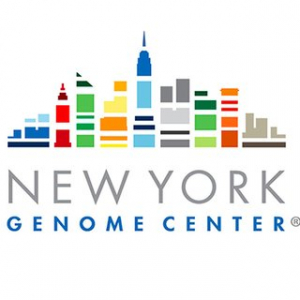Job Description
About the labs
The Sanjana lab works at the intersection of genomics and bioengineering. We are curious about many things and are passionate about what we do. We primarily develop new technologies for hacking and understanding biological systems. We try to learn from nature and to re-purpose what we learn to gain deeper insights into how genomes and neural systems function. In the lab, we modify genomes, perform high-throughput screens, differentiate human neurons from stem cells, watch synapses rewire, find vulnerabilities in cancer cells and have a lot of fun in the process. We aim to have a tangible impact on improving human health by creating new biological tools and fundamental biological discovery.
The Lappalainen lab studies functional genetic variation in the human populations by analyzing how genetic variants affect molecular and cellular traits, and how these cellular changes contribute to genetic risk for both common and rare diseases and traits. We analyze these questions both by computational analysis of large genomic, transcriptomic and multi-omic data sets, and by experimental approaches. Our lab includes experts across the field of systems genetics, from statistical genetics and genomics to molecular genomics.
About the position
We are looking for a postdoctoral scientist eager to understand the impact of human genetic variation on gene expression and phenotypes at the cellular, tissue and physiological levels. This position will be at the intersection of computational and wet-lab work, with co-mentorship by both PIs and membership in both labs. The projects for the postdoctoral scientist combines cutting-edge human genetics and genome technology development, with possible projects in CRISPR and single-cell multi-omics, and its integration with GWAS and eQTL data, including novel data from projects such as Developmental GTEx. Recently, the Sanjana and Lappalainen labs developed STING-seq (Systematic Targeted Inhibition of Noncoding GWAS loci with sequencing): https://www.biorxiv.org/content/10.1101/2021.04.07.438882v1. We seek to extend STING-seq to new cell types (including primary cells) and develop next-generation genome editing approaches to answer fundamental questions in human genetics, GWAS and disease biology. In addition, we envision that the postdoctoral scientist will play a major role in developing new projects in a supportive team science environment.
To be considered for this role, please provide: 1) CV with a list of publications; 2) a short summary of your present and future research interests; 3) a list of three references and their contact information with your application.
Required Skills
The ideal candidate will hold a PhD or MD-PhD, have prior research experience in any of the following: molecular biology, statistical genetics, biochemistry, computational biology and/or functional genomics and will have prior peer-reviewed publications. The candidate will be expected to plan and carry out research tasks independently and write-up/present findings on a regular basis. This position can be tailored to a candidate with strong molecular biology skills who are looking to improve their computational skills, or to a candidate with a stronger background in computational genetics or genomics looking to develop expertise in cutting-edge experimental methods.
Required Experience
About NYGC: A cutting-edge environment for genomics
NYGC is an independent, nonprofit, academic research organization dedicated to advancing genomic research. NYGC scientists and staff are furthering new approaches to diagnosing and treating neurological diseases and cancer through their unique capabilities in whole genome sequencing, RNA sequencing, state-of-the art analytics, and the development of genomic tools. NYGC concentrates specifically on disease-based research in the following areas: neuropsychiatric disease (autism, schizophrenia, bipolar); neurodegenerative disease (ALS, Alzheimer’s, Parkinson’s, Huntington’s), and cancer.
Located in Lower Manhattan, the New York Genome Center was founded by and remains closely affiliated with the leading academic medical centers and research universities in the New York region, engaging in research projects with and for these institutions. Essential to our collaborative work is an outstanding faculty, whose members typically hold a joint appointment at NYGC and a partner university. They support our scientific mission by conducting independent research in areas of mutual interest to us and the wider scientific community.
New York Genome Center
New York, New York
The New York Genome Center (NYGC) is an independent, nonprofit academic research institution focused on furthering genomic research that leads to scientific advances and new insights and therapies for patients with neurodegenerative disease, neuropsychiatric disease, and cancer. Leveraging our strengths in whole genome sequencing, genomic analysis, and development of genomic tools, the NYGC serves as a nexus for collaboration in genomic research for the New York community and beyond.
The NYGC harnesses the expertise and builds on the combined strengths of our faculty, member institutions, scientific working groups, affiliate members, and industry partners to advance genomic discovery. Central to our scientific mission is an outstanding faculty who are leading independent research labs based at the NYGC and jointly with one of our member institutions, bringing a multidisciplinary and in-depth approach to the field of genomics.
The NYGC has attracted leading scientists whose wide-ranging expertise — including single cell genomics, genome engineering, population genomics, statistical genetics, computational biology and bioengineering —brings a multidisciplinary and in-depth approach to the field of genomics. NYGC senior and core faculty members, who hold joint appointments at leading New York institutions, include a Nobel Laureate, three Lasker award winners and five members of the National Academy of Sciences. Since its inception, NYGC researchers have published more than 200 research studies in leading, high-impact scientific journals.
-
IndustryNonProfit
-
No. of Employees50 - 250
-
Website
-
Jobs Posted41


